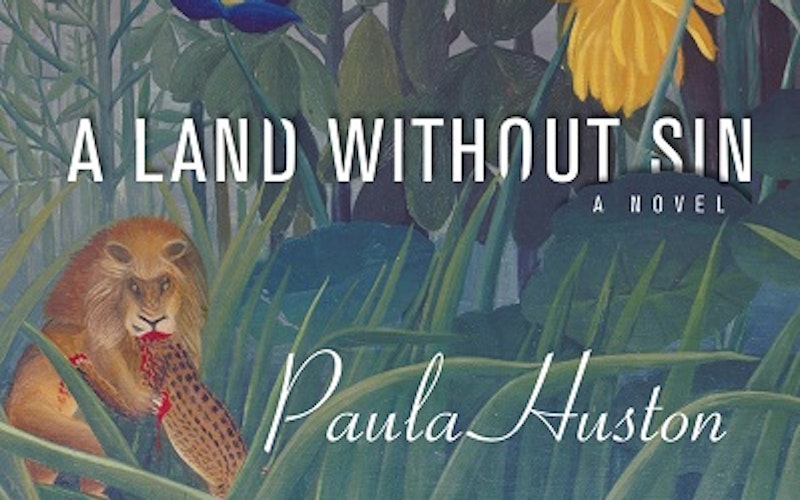
Culture At Large
Theology through character in A Land Without Sin
Paula Huston’s A Land Without Sinis a conglomerate of thriller, historical treatise and theological reflection. It is also a surprisingly addictive read. As a reader, I’m often either very slow or very rushed, and Huston’s story about a woman searching for her brother in a tumultuous, strife-ridden Mexico during the early 1990s not only caught my attention, but demanded it for hours.
What demands our attention is Huston’s compelling cast of characters and the way that they are not only believable, but somehow alive, their voices and movements pushing you past each page, making you eager to keep listening. The novel’s protagonist, Eva, is a wartime photojournalist whose world-weariness masks a fragile, aching longing for love and reconciliation with her family. This is particularly true in regards to her brother Stefan, whose dangerous connection to a rebel army in Chiapas causes him to go missing and causes Eva to set out on an expedition to find him.
On Eva’s rescue mission, we meet the other characters that, as Eva would say, try our “Christian patience.” There’s Jan, the quiet, Dutch anthropologist who hires Eva to photograph his mysterious project in Mayan ruins; his likable son and assistant Rikki; and the even more mysterious Anne, Jan’s wife, whose appearance mid-novel not only shocks Eva, but brings her own existential crisis to the fore of the story.
Eva struggles with more than the hardening demands of living in war-torn countries or even with the loneliness that clips her various romantic relationships. She struggles with the emotional inheritances from her immigrant parents, who are bitter and reclusive, and from the secrecy surrounding the death of her grandfather, whose gift of a locked black box to Stefan days before he is found hung from a tree haunts Eva and Stefan both.
Huston’s novel is a careful weaving of situations both intimate and public.
For what sits inside the box, and inside Stefan’s own heart, prompts a wrestling with good, evil and God that Eva herself cannot avoid, explain or even fully admit. And it takes a journey through the ruins of Mayan civilization and the violent implosion of Chiapas’ own community to bring Eva to the brink of her own spiritual reckoning.
Huston’s novel is a careful weaving of situations both intimate and public. She gracefully imbues the story of Eva’s search for her brother with a sense of history that is palpable, while the complicated, often ignored political violence of Latin America receives its due. And the merging of Jan’s study of the collapse of Mayan civilization with liberation theology and the work of Rene Girard, chronicled so naturally in Stefan’s letters, is both intriguing and brilliantly tied to the plot of the novel.
When a novel deals with faith and theology, it is easy to turn the story into a mask for a spiritual message. Laura Ortberg Turner has written that “when authors make the mistake of thinking they don't have to develop their characters because their message is so significant, they place themselves above the reader and the experience isn't pleasant for anyone.” Huston’s novel not only brings us into a world whose characters and story fully and believably engage loss, doubt and redemption, it also gives us a reading experience that is pleasant and captivating.
Topics: Culture At Large, Arts & Leisure, Books